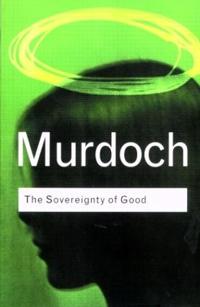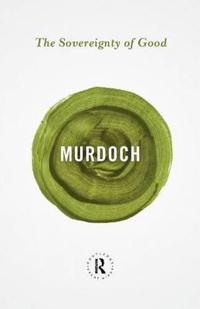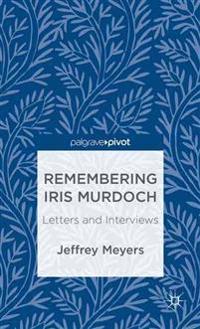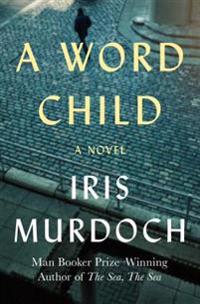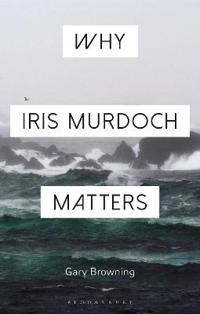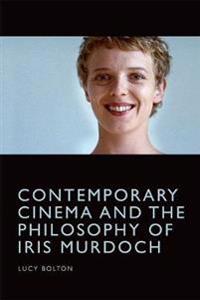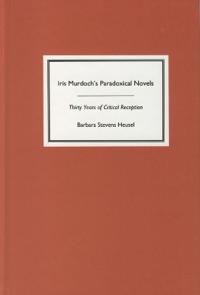Picturing the Human: The Moral Thought of Iris Murdoch (Pocket)
avMaria Antonaccio
ISBN: 9780195166606 - UTGIVEN: 2003-04-01Iris Murdoch, Philosopher (Pocket)
avJustin (EDT) Broackes
ISBN: 9780198701200 - UTGIVEN: 2014-02Iris Murdoch was a notable philosopher before she was a notable novelist and her work was brave, brilliant, and independent. She made her name first for her challenges to Gilbert Ryle and behaviourism, and later for her book on Sartre (1953), but she had the greatest impact with her work in moral ph[...]
Iris Murdoch, Philosopher (Inbunden)
ISBN: 9780199289905 - UTGIVEN: 2011-12Iris Murdoch was a notable philosopher before she was a notable novelist and her work was brave, brilliant, and independent. She made her name first for her challenges to Gilbert Ryle and behaviourism, and later for her book on Sartre (1953), but she had the greatest impact with her work in moral ph[...]
Iris Murdoch: Texts and Contexts
ISBN: 9780230348288 - UTGIVEN: 2012-07Using unpublished archive material, including correspondence and the many annotations Murdoch made to the books held in her Oxford library, this book offers fresh insights into Murdoch's work by placing it within a diversity of new contexts. It also reveals startling parallels between Murdoch's work[...]
The Sovereignty of Good (Storpocket)
avIris Murdoch
ISBN: 9780415253994 - UTGIVEN: 200105Iris Murdoch once observed: 'philosophy is often a matter of finding occasions on which to say the obvious'. What was obvious to Murdoch, and to all those who read her work, is that Good transcends everything - even God. Throughout her distinguished and prolific writing career, she explored question[...]
Iris Murdoch, Gender and Philosophy (Storpocket)
avSabina Lovibond
ISBN: 9780415429993 - UTGIVEN: 2011-03Iris Murdoch was one of the best-known philosophers and novelists of the post-war period. In this book, Sabina Lovibond explores the tangled issue of Murdoch's stance towards gender and feminism, drawing upon the evidence of her fiction, philosophy, and other public statements. As well as analysing[...]
The Sovereignty of Good (Pocket)
avIris Murdoch
ISBN: 9780415854733 - UTGIVEN: 2013-09Iris Murdoch was one of the great philosophers and novelists of the twentieth century and The Sovereignty of Good is her most important and enduring philosophical work. She argues that philosophy has focused, mistakenly, on what it is right to do rather than good to be and that only by restoring the[...]
Living on Paper: Letters from Iris Murdoch, 1934-1995
ISBN: 9780691170565 - UTGIVEN: 2016-01Iris Murdoch was an acclaimed novelist and groundbreaking philosopher whose life reflected her unconventional beliefs and values. But what has been missing from biographical accounts has been Murdoch's own voice--her life in her own words. "Living on Paper"--the first major collection of Murdoch's m[...]
Remembering Iris Murdoch (Inbunden)
ISBN: 9781137352415 - UTGIVEN: 201305Through his work as a literary biographer, Jeffrey Meyers met Murdoch in 1978. Over the next 17 years the two continued to correspond, completing two interviews for the Paris Review "Writers at Work" series and becoming friends. In her letters, published for the first time in this volume, Murdoch di[...]
Iris Murdoch
ISBN: 9781349281152 - UTGIVEN: 2014-01This book is an eclectic mix of essays that reposition Murdoch's work in relation to current debates in philosophy, theology, literature, gender and sexuality, and authorship. The essays refine, develop or contest previous readings, and blur the distinction between liberal humanist and theoretical p[...]
Iris Murdoch
ISBN: 9781403916655 - UTGIVEN: 2004-11Iris Murdoch: The Retrospective Fiction traces the preoccupation in Murdoch's fiction with the way the past makes its mark upon us, haunting us and eluding our attempts to grasp it. This argument was given an extra resonance by the death of Murdoch after Alzheimer's disease in 1999, when the book wa[...]
A Word Child (Häftad)
avIris Murdoch
ISBN: 9781453201152 - UTGIVEN: 2012-08A brilliant but deeply flawed man struggles to earn absolution
Hilary Burde was a rising star in academia until a tragic accident plunged him and his mentor and rival, Gunnar Jopling, into two decades of depression and guilt. Hilary, unable to overcome his pain, abandoned his promising career fo[...]Why Iris Murdoch Matters (häftad)
ISBN: 9781472574473 - UTGIVEN: 2018-08In Why Iris Murdoch Matters Gary Browning draws on as yet unpublished archival material to present an unrivalled overview of Murdoch's work and thought. Browning argues for Murdoch's position amongst the key theorists of modern life, and discusses in detail her engagement with the notion of late mod[...]
Why Iris Murdoch Matters
ISBN: 9781472574480 - UTGIVEN: 2018-08In Why Iris Murdoch Matters Gary Browning draws on as yet unpublished archival material to present an unrivalled overview of Murdoch's work and thought. Browning argues for Murdoch's position amongst the key theorists of modern life, and discusses in detail her engagement with the notion of late mod[...]
Iris Murdoch's Paradoxical Novels: Thirty Years of Critical Reception
ISBN: 9781571130891 - UTGIVEN: 2001-09The novels of the late Iris Murdoch have been compared to Shakespeare; her name has been put forward for the Nobel Prize in literature; her works have been translated into 29 languages; and no less a critic than Harold Bloom has said of her 'no other contemporary British novelist seems to me to be o[...]
The Sea, the Sea (Pocket)
avIris Murdoch
ISBN: 9781784870058 - UTGIVEN: 2015-04'Time, like the sea, unties all knots.' This title comes with an introduction by John Burnside. When Charles Arrowby retires from his glittering career in the London theatre, he buys a remote house on the rocks by the sea. He hopes to escape from his tumultuous love affairs but unexpectedly bumps in[...]





